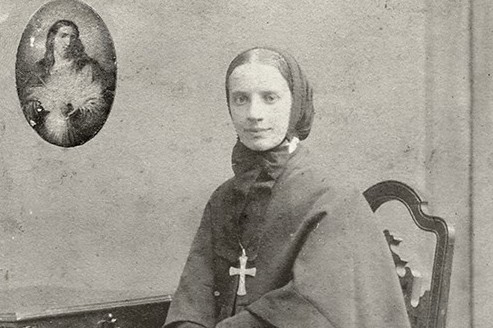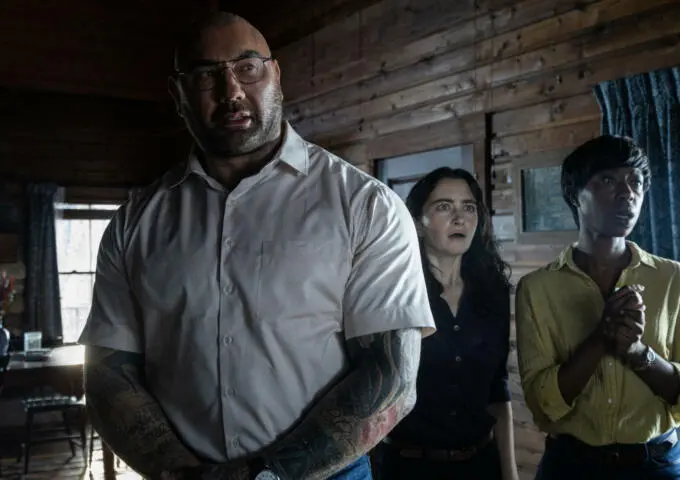The remarkable and largely unknown story of Francesca Cabrini, a poor, frail, yet strong-willed woman from Italy who changed the landscape of immigration, education, and health care for generations of immigrants to the United States, is about to become a movie.
“Cabrini,” which begins production this year and will be distributed via streaming services, will be shot in New York, and directed by Alejandro Monteverde and produced by Jonathan Sanger. Backers of the film have established a 501(c)(3) that will redistribute film revenues to charitable organizations.
Born in a tiny village in Italy in 1850, Cabrini’s childhood made her unlikely to ever leave the borders of her native Lombardy. She survived tuberculosis only to be stricken with smallpox and lifelong bronchitis. Before her 12th birthday, she was given, at most, a few years to live.
And yet, despite her frailty, her resolve was unwavering, once quipping, “The world is too small for what I intend to do.” By the end of her life, Cabrini had founded over 67 hospitals, orphanages and schools across the globe. She was responsible for the largest transnational humanitarian empire the world had ever known, exceeding the charitable endeavors of all her contemporaries, said to include the Vanderbilts and the Rockefellers combined.
“St. Frances Xavier Cabrini has much to teach us at this time in history,” said Eustace Wolfington, primary sponsor of the film.
“Faced with forces of ill-will and hostility, this little woman with enormous strength and fortitude built a worldwide empire of hope. We believe the time is right to tell her story.
“Her story is the American story. In fact, she is one of the greatest women in American history, if not the greatest,” Wolfington added. “She’s one of our own, let’s make her known.”
Wolfington, from Philadelphia, founded Half-A-Car, a company that created the way cars are leased today. He has created many businesses and is an investor and entrepreneur. He helped produce the film “Bella,” which won the People’s Choice Award at the Toronto International Film Festival in 2006.
“Cabrini” will commence principal photography in the spring, filming throughout the state of New York.

PW recently caught up with Wolfington to discuss the project.
PW: Where did the idea for a movie about Francesca Cabrini originate?
EW: It dates back to 1955. At the time, I owned a car dealership on Chestnut Street in Philadelphia. I was looking for a place to go to mass on my way into work. I found a church called St. Donato at 65th and Callowhill. Mother Cabrini had built an orphanage across the street and her statue was prominently displayed in the church. I was in mass one day and the priest announced that they were beginning a nine-week novena to Mother Cabrini. I was newly engaged to my wife, Marcy, and said to her, “Let’s do the novena together.” By the end of nine weeks, I said to myself, “Wow, this is really a make-it-happen lady. I’m going to make her my patron saint.”
Mother Cabrini’s entrepreneurial spirit, passion and commitment to her vocation, perseverance, creativity, organizational skills, unwavering faith and love for everyone she encountered have guided me throughout my career. I even named one of my companies after her.
In 2015, Sister Mary Louise Sullivan of the Missionary Sisters of Sacred Heart order asked me to help complete a film about Mother Cabrini. After initially saying no, she convinced me to think about it. Her persistence wore down my resistance, and I agreed to do it on one condition: We make a film about a great woman who just happened to be a nun. A film that would inspire, motivate and present a role model for this generation and future generations to emulate. I envisioned it as a major film, like “Gandhi,” that would appeal universally, to all people.
When I began this mission, I quickly realized we couldn’t move forward without an outstanding script. We diligently researched to find the right writer. Before he could touch the keyboard, we had him join us to read 22 books on Cabrini’s life. Then we took him to Codogno, Italy, to spend seven days with the historians, walking her path in Italy and finished with three days of research in the Vatican Library. Upon returning to the U.S., we walked her path in New York, then Chicago and Denver. After this in-depth indoctrination into Cabrini’s life and mission, the writer knew her intimately and was prepared to write the story.
PW: Where are you at in terms of the pre-production process? Have you selected any of the actors? Is the pandemic having an impact on the process?
EW: Pre-production has begun. Scouting of locations is underway. The script is done, our production team is assembled and working, (director, producer, etc.), and we are scheduled to commence shooting in New York in the spring.
The director is Alejandro Monteverde, who gained world-renown by winning the People’s Choice Award at the Toronto International Film Festival with his first feature film, “Bella,” a Mexican romance. The producer is Jonathan Sanger, whose films (including “The Elephant Man,” “The Producers” and “Vanilla Sky”) have received three Academy Awards and 21 Academy Award Nominations. Sanger attended University of Pennsylvania, where he was chairman of the board of The Pennsylvania Players, and president of the Performing Arts Council. We are presently interviewing actors to play the lead for Mother Cabrini.
The pandemic has had an impact scheduling because we must follow strict health protocols, including scouting quarantine rules. We are working with the New York Film Commission and, following every guideline, which takes more time and planning for each aspect of production. Every time a garment is worn, it must be taken to the cleaners. It is very expensive.
PW: What challenges does “Cabrini,” as an independent film, face that productions from the large studios don’t?
EW: We have an advantage in that we can move faster and make decisions that big production companies are not capable of doing. Capital can be a challenge for an independent film. But the Cabrini film has the financing. Distribution is now primarily through streaming services. All the streaming companies are looking for good content. Previously, a movie had to be in the theaters for 90 days before it could go to streaming, but COVID has changed the game. Now, they have set up a “New Release” section on the websites where users can see first-run movies for a premium price. This change to the distribution model allows filmmakers to go direct to streaming. You get a much larger audience for lower cost to the filmmaker.
PW: The movie is scheduled to begin filming in the spring. Can you give us a timeline in terms of finishing it and getting it to the viewing public?
EW: We anticipate approximately 10 weeks of shooting, which will include eight weeks in New York and two weeks in Rome. Plus, post-production editing. We believe we can release the movie for the 2021 holiday season.
PW: How can people stay up to date with or contribute to the film?
EW: A website is being built where people can follow updates at www.cabrinifilm.com. We have a unique not-for-profit 501(c)(3) where donations to the film will be distributed to Missionaries Sisters of The Sacred Heart. People who wish to support the production can email contact@cabrinifilm.com or they can send a contribution directly to: Lodigiano Film Production, Inc., 700 S. Henderson Rd. St. 202, King of Prussia, PA 19406.





